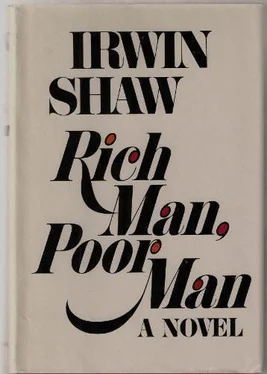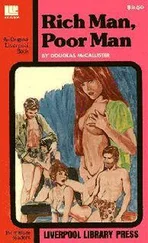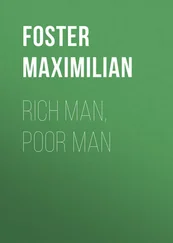Her mother once confided to Gretcheh that she had wanted to be a nun. There was a bluntness of sensiblity there that disturbed Gretchen when she thought about it. Nuns had no daughters. She existed, aged nineteen, seated in front of the mirror on a March night in the middle of the century because her mother had failed to live up to her destiny.
After what had happened to her tonight, Gretchen thought litterly, she herself would be tempted to enter a nunnery. If only she believed in God.
She had gone to the hospital as usual after work. The hospital was a military one on the outskirst of town, full of soldiers convalescing from wounds received in Europe. Gretchen was a volunteer worker five nights a week, distributing books and
wounds and writing letters for soldiers with hand and arm injuries. She wasn’t paid anything, but she felt it was the least she could do. Actually, she enjoyed the work. The soldiers were grateful and docile, made almost childlike by their wounds, and there was none of the tense sexual parading and reconnoitring that she had to endure in the office all day. Of course, many of the nurses and some of the other volunteers slipped off with the doctors and the more active officer-wounded, but Gretchen had quickly shown that she wasn’t having any of that. So many girls were available and willing, that very few of the men persisted. To make it all easier, she had arranged to be assigned to the crowded enlisted men’s wards, where it was almost impossible for a soldier to be alone with her for more than a few seconds at a time. She was friendly and easy with men conversationally, but she couldn’t bear the thought of any man touching her. She had been kissed by boys from time to time, of course, at parties and in cars after dances, but their clumsy gropings had seemed meaningless to her, unsanitary and vaguely comic.
She was never interested in any of the boys who surrounded her in school and she scorned the girls who had crushes on football heroes or boys with cars. It all seemed so pointless. The only man she had ever speculated about in that way was Mr Pollack, the English teacher, who was an old man, maybe fifty, with tousled grey hair, and who spoke in a low, gentlemanly voice and read Shakespeare aloud in class.’ ‘Tomorrow, and tomorrow, and tomorrow, creeps in this petty pace from day to day … ”’ She could imagine herself in his arms, and his poetic and mournful caresses, but he was married and had daughters her age and never remembered anyone’s name. As for her dreams … She forgot her dreams.
Something enormous was going to happen to her, she was sure, but it wasn’t going to be this year or in this town.
As she went on her rounds in the loose, grey smock provided by the hospital, Gretchen felt motherly and useful, making up in a small way for what these courteous, uncomplaining young men had suffered for their country. The lights were low in the wards and all the men were supposed to be in bed. Gretchen had made her usual special visit to the bedside of a soldier named Talbot Hughes, who had been wounded in the throat and couldn’t speak. He was the youngest soldier in the ward and the most pitiful and Gretchen liked to believe that the touch of her hand and her goodnight smile made the long hours before dawn more bearable
for the boy. She was tidying the common-room, where the men read and wrote letters, played cards and checkers, and listened to the phonograph. She stacked the magazines neatly on the centre table, cleared off a chessboard and put the pieces in their box, dropped two empty Coca-Cola bottles into a wastebasket.
She liked the little housewifely end of the night, conscious of the hundreds of young men sleeping around this central, warm core of the hospital block, young men saved from death, acquitted of war, young men healing and forgetting fear and agony, young men one day nearer to peace and home.
She had lived in small, cramped quarters all her life and the spaciousness of the common-room, with its pleasant light-green walls and deep upholstered chairs, made her feel almost like a hostess in her own elegant home, after a successful party. She was humming as she finished her work and was just about to turn out the light and start for the locker-room to change her clothes when a tall young Negro in pyjamas and the Medical Corps’ maroon bathrobe limped in.
“Evening, Miss Jordache,’ the Negro said. His name was Arnold. He had been in the hospital a long time and she knew him fairly well. There were only two Negroes in the block and this was the first time Gretchen had seen one without the other. She always made a particular point of being agreeable to them. Arnold had had his leg smashed when a shell hit the truck be was driving in France. He came from St Louis, he had told her, and had eleven brothers and sisters, and had finished high school.
He had spent many hours reading and wore glasses while doing so. Although he seemed to read at random, comic books, magazines, the plays of Shakespeare, anything that happened to be lying around, Gfetchen had decided that he was ripe for literature. He did look bookish, like a brilliant, lonely student from an African country, with his Army-issue glasses. From time to time Gretchen brought him books, either her own or her brother Rudolph’s, or sometimes from the public library in town. Arnold read them promptly and returned them conscientiously, in good condition without ever offering any comment on them, Gretchen felt that he was silent out of embarrassment, not wanting to pretend to be an intellectual in front of the other men. She read a great deal herself, but omnivorously, her taste guided in the last two years by Mr Polack’s catholic enthusiasms. So she had through the months offered Arnold such disparate works as Tess of the D’Urbervilles and the poems
of Edna St. Vincent Millay and Rupert Brooke, and This Side of Paradise, by F. Scott Fitzgerald.
She smiled as the boy came into the room. ‘Good evening, Arnold,’ she said. ‘Looking for something?’
‘Naw. Just wanderin’. Couldn’t get to sleep, somehow. Then I saw the light in here and I say to myself, “I’ll go in and visit with that pretty lil Miss Jordache, pass the time of day.”’ He smiled at her, his teeth white and perfect: Unlike the other men, who called her Gretchen, he always used her last name. His speech was somehow countrified, as though his family had carried the burden of their Alabama farm with them when they migrated north. He was quite black, gaunt in the loose bathrobe. It had taken two or three operations to save his leg, Gretchen knew, and she was sure she could see the lines of suffering around his mouth.
‘I was just going to put the light out,’ Gretchen said. The next bus passed the hospital in about fifteen minutes and she didn’t want to miss it.
Pushing off his good leg, Arnold bounced up on the table. He sat there swinging his legs. ‘You don’t know the pleasure a man can get,’ Arnold said, ‘just looking down and seeing his own two feet. Just go on home, Miss Jordache, I imagine you got some fine young man waiting for you and I wouldn’t like him to be upset your not coming on time.’
‘Nobody’s waiting for me,’ Gretchen said. Now she felt guilty that she had wanted to hustle the boy out of the room just to catch a bus. There’d be another bus along. ‘I’m in no
hurry.’
He took a package of cigarettes out of his pocket and offered her one. She shook her head. ‘No, thank you. I don’t smoke.’ He lit his cigarette, his hands very steady, his eyes narrowed against the smoke. His movements were all deliberate and slow. He had been a football player in high school in St Louis before he was drafted, he had told her, and the athlete remained in the wounded soldier. He patted the table next to him. ‘Why don’t you set awhile, Miss Jordache?’ he said. You must be weary, on your feet all night, running around the way you do for us.’
Читать дальше











